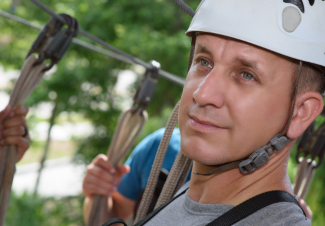Tips to Beat the Winter Blues and Improve Your Mental Health

When the cold air rolls in and the days grow shorter, it’s easy to feel slightly off. For some, this shift signals the onset of the winter blues, also known as seasonal affective disorder (SAD). Brought on by the darker days of the season, this condition causes increased feelings of sadness and depression. Understanding how SAD works and discovering practical ways to ease symptoms are key to regaining control and feeling better.
Why Does SAD Happen?
Scientists believe that a lack of sunlight and low levels of vitamin D trigger seasonal affective disorder. Sunlight is a natural source of vitamin D, which is known to affect mood. The sun shines less during the winter, and many people limit their time outdoors, which can increase the risk of seasonal depression.
What Are Common Symptoms of SAD?
Like those who have regular depression, people who have seasonal depression tend to have low energy, decreased interest in activities, and sleep issues. Increased irritability and overeating are also common.
How Can You Beat the Blues?
“We have an incredibly powerful mind-body connection that can influence us both positively and negatively,” said Mark Fletcher, a Navy veteran turned mental health support specialist with the WWP Talk program. “How we think can affect how we feel and behave. And how we behave can affect how we feel and think.”
While the Veterans Health Administration reports that phototherapy and talk therapy work well for those with SAD, Fletcher emphasizes that naturally boosting the brain’s four neurotransmitters, known to affect mood, can also be a valuable approach to beating the winter blues.
These are also known as “happy hormones” and include:

Certain foods can help boost brain chemicals, as can connecting with others.
- Dopamine — This hormone helps with concentration and motivation and is also linked to pleasure. It’s almost like your brain’s reward system – when you experience something that feels good, you get a dopamine rush. Exercise can raise dopamine levels, as can listening to music and getting a good night’s sleep. Research shows that eating a diet high in protein can help increase amino acids that support dopamine production.
- Oxytocin — Known as the “loving hormone,” oxytocin rushes in when you hug a loved one, pat someone on the back, or shake hands. It enhances social interactions and supports warmth, openness, and generosity. Additionally, oxytocin encourages the production of another hormone called anandamide, which forms new nerve cells in the brain and helps reduce anxiety. Physical touch is a common way to enhance oxytocin levels, but you can get a boost from spending time with friends, engaging in meaningful conversations, and even meditating.
- Serotonin — Gives a feeling of well-being, especially when you receive attention or feel appreciated. It regulates sleep, digestion, libido, memory, and learning. You can boost serotonin in your brain by staying connected with others, going outside to soak up some sun, recalling happy and positive memories, exercising, and volunteering. Eating foods rich in tryptophan can also help boost serotonin levels, too.
- Endorphins — Around 20 brain chemicals act as natural painkillers. The word “endorphin” comes from endogenous (from within) and morphine (masks pain). These reduce stress and give you that “runner’s high” associated with euphoria or bliss. In addition to exercise, you can raise endorphins by eating dark chocolate, enjoying a massage, or engaging in aromatherapy. Numerous studies indicate certain smells, like lavender, vanilla, and citrus scents, are most helpful.
5 Tips to Increase Mood
Fletcher believes the best way to maximize mood and stave off depression is to look for opportunities to laugh, be active, get outdoors, and engage with others.

Connecting with others and enjoying a good laugh is a great way to boost your mood.
Have a Good Laugh
“It’s common to hear about people coping with dark or difficult circumstances through humor. That’s because laughter is known to trigger the release of endorphins, and it is such an enjoyable medicine to take,” Fletcher said.
“Many people have streaming services nowadays, so you don’t need to plan a special trip to a comedy club. Just tune into a comedy show on the radio or television, and you’ll be surprised with how you feel,” said Fletcher, who admits he recently traded in music for comedy on his commute home from the office. “I was in a more joyful mood when I stepped in the door.”
Find Something Fun
“I recall speaking to an older veteran and asking him what he liked to do for fun. He answered that he hadn’t had fun in years. It’s important to engage in things that are fun and make you happy. Dopamine levels increase by doing things that we enjoy. And that, in turn, helps us stay happy, motivated, and feel balanced,” explained Fletcher.
Everyone has a different idea of fun. For one person, it could be line dancing at a country club, visiting a theme park, or riding roller coasters, while for another, it could be skateboarding or playing guitar. “Find that thing that you love, that is enjoyable and gives you zest for life,” he said. “If the activity is fun and enjoyable, you are likely to do it more often, and it will take less effort.”
Get Physical with Exercise

Exercise helps to release neurotransmitters in the brain.
While daily exercise is good for physical health, its benefits for mood are just as significant. Exercise increases serotonin levels and releases endorphins.
“Exercise, more often than other factors, is a common way to boost your happy hormones. For instance, a lot of runners relate experiencing a runner’s high, a feeling of excitement and enjoyment during the mid-point or at the end of their route,” said Fletcher.
Some people can walk, run, or practice yoga effortlessly all year, indoors or out. However, those who prefer warmer-weather activities like golf, surfing, or beach volleyball may find it challenging to stay active when the temperature starts to drop.
But Fletcher, who has worked with warriors participating in adaptive sports programs offered by WWP, said colder weather presents a unique opportunity to adapt and try new things.
For example, if you’re a cyclist, consider mountain biking on a trail with lots of hills and twists and turns. “This can be a fun thrill, similar to a roller coaster ride, but it’s great exercise, and you’re out in nature, with sunlight. Or, if you like playing tennis or pickleball, find out about an indoor league in your area. It’s fun, exercise, and it’s social engagement,” Fletcher said.Winter is also the ideal time to try snowboarding, skiing, or ice skating, he said.
Build and Maintain Connection
“Social engagement and connection are crucial for our mood and mental well-being,” said Fletcher, noting that isolation and lack of connection can have major health consequences, including increasing the risk of heart disease, stroke, and dementia.
Fletcher adds that WWP makes it easy for warriors to connect. “I always tell people that Wounded Warrior Project exists so they don’t have to go at life alone. Wounded Warrior Project built its foundation on connection. Our programs and alumni events make it easy for warriors and their loved ones to connect with others like them, who understand them and their experiences and improve their mood.”
Schedule Time for Self-Care

Connection with others, including physical touch, can help improve mood.
Fletcher tells warriors and caregivers: “You won’t be much good for others if you don't invest in yourself.”
For some, exercise is a form of self-care. For others, it’s taking an art class or catching a movie with a friend. “What’s important is that you carve out time for yourself, even if it’s a few minutes a day. The connection between your mind and body is great, so even small things will boost our happiness and help us avoid depression,” said Fletcher.
Seasonal Support, All Year Long
Fletcher adds that if you aren’t sure what you need, contact WWP. The Resource Center helps connect warriors and their loved ones with support, guiding them through resources, programs, and services at every stage of their journeys.
“Wounded Warrior Project makes it easy for people to improve their mental well-being any time of year. We are here to help support overall health and wellness in any season, even if you aren’t sure what you need. We can assist with ideas, be an accountability partner, celebrate the successes, and help you work through the tough times.”
In addition to various mental health resources, WWP offers Physical Health and Wellness initiatives, financial and benefits support, career assistance, and an Alumni Connection Program to support a lifetime of well-being.
Contact: Cynthia Weiss – Public Relations, cweiss@woundedwarriorproject.org, 904.738.2589
About Wounded Warrior Project
Since 2003, Wounded Warrior Project® (WWP) has been meeting the growing needs of warriors, their families, and caregivers — helping them achieve their highest ambition. Learn more about Wounded Warrior Project.


